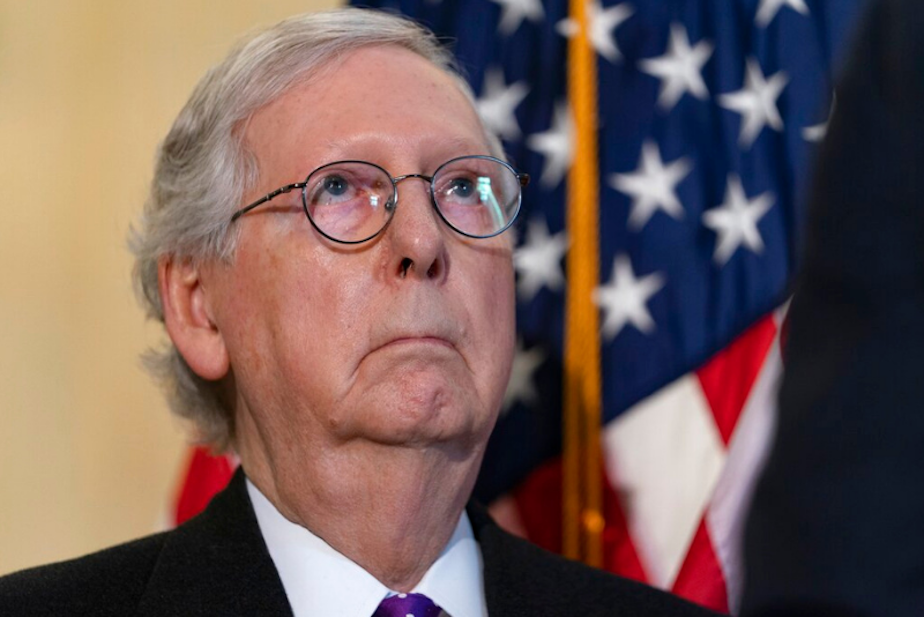Should the U.S. enact age limits for elected officials?

In the second such episode this summer, Senate Minority Leader Mitch McConnell (R-KY) appeared to freeze on Wednesday as a group of reporters asked if he’d seek re-election in 2026. McConnell, age 81, stood silent for several seconds before an aide came to check on him.
A similarly concerning incident happened during a roll call vote in July, when 90-year-old Sen. Dianne Feinstein (D-CA) appeared confused about the procedure, and launched into a speech until a colleague told her to “just say aye.” She also missed dozens of votes while taking time off due to illness earlier this year.
Age may also be one of the defining issues of the 2024 presidential race, considering President Joe Biden and former President Donald Trump were the oldest candidates in U.S. history the last time they faced off. They’re also both the oldest people to hold the office of U.S. president: Trump took office at age 70, and Biden at 78.
All of this has renewed questions about whether we should institute age limits or other guardrail policies related to people aging in public office. It's a controversial idea — one that Nancy Jecker, a University of Washington bioethics and philosophy professor, argues is a slippery slope.
"Why should we assume that people who are old are unfit for the job?" Jecker said. "Experts distinguish between biological aging, for example, which is essentially wear and tear on the body, and chronological aging, which is time since birth."
Sponsored
When discussing age limits for politicians, people are generally concerned about an official's biological age and mental acuity rather than their chronological age. But the conversation rarely draws a distinction between the two, which Jecker said may further contribute to unfair age bias.
"Age is sometimes used as a marker for poor health. But it's a really blunt instrument," she said.
Jecker suggested testing one’s individual health may be a better alternative to enacting age limits. It's not a perfect solution, "but I think some answers are better than others. And I think requiring a health exam on some regular intervals is probably appropriate," she said.
Since 1967, the U.S. has banned forced retirements based on age, instead "using things like job competence as a basis for making decisions about employment or retirement," Jecker added.
There are other arguments for age limits. For one, elected officials who hold office for decades may keep younger individuals from moving up the ranks.
Sponsored
Jecker countered this argument by saying that no jobs rightfully belong to anyone, and that this belief "casts older people as thieves," she said.
She added that many older politicians do their job "with a lot of experience and expertise.”
But those moments don’t tend to go viral. It’s the more shocking moments, like McConnell’s recent freezes and Feinstein’s display of apparent confusion that tend to grab attention.
"That's what people are interested in — people laugh at it, people pay attention to it," Jecker said.
“So I think our assessment of it can be distorted," she added.






